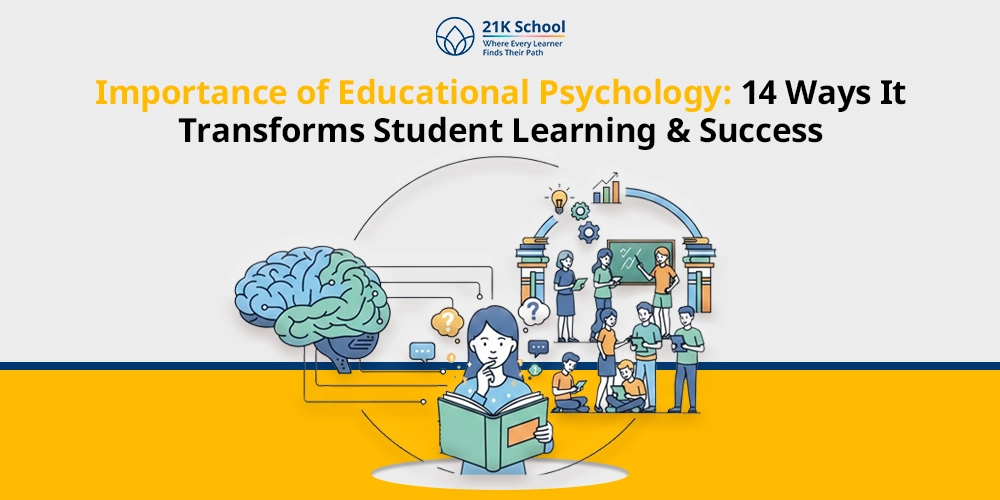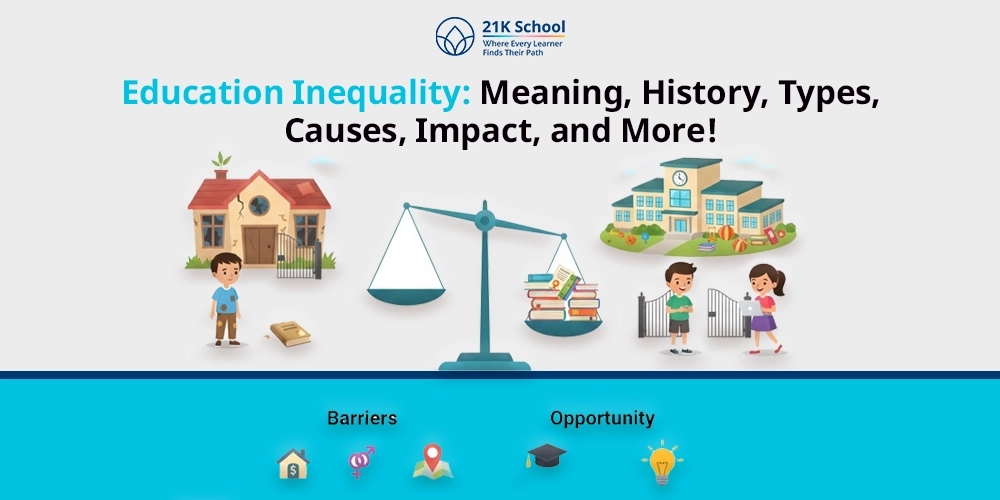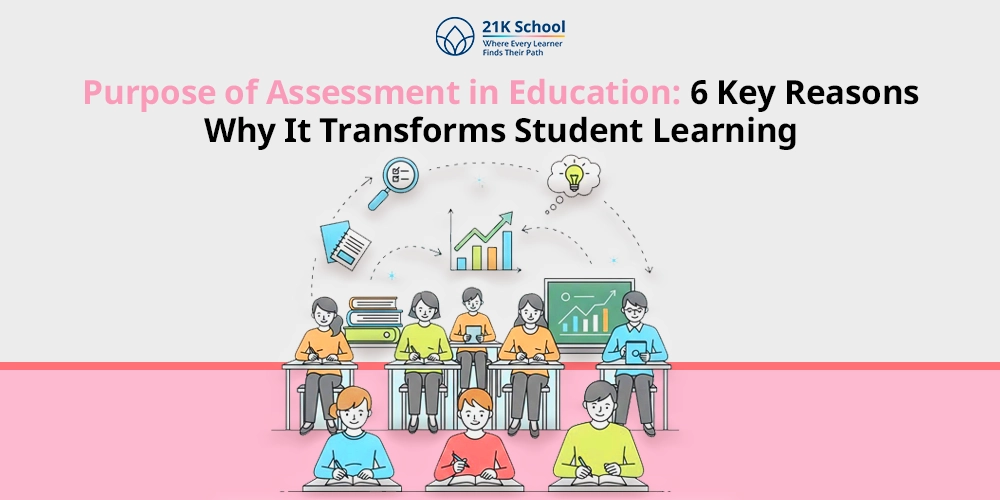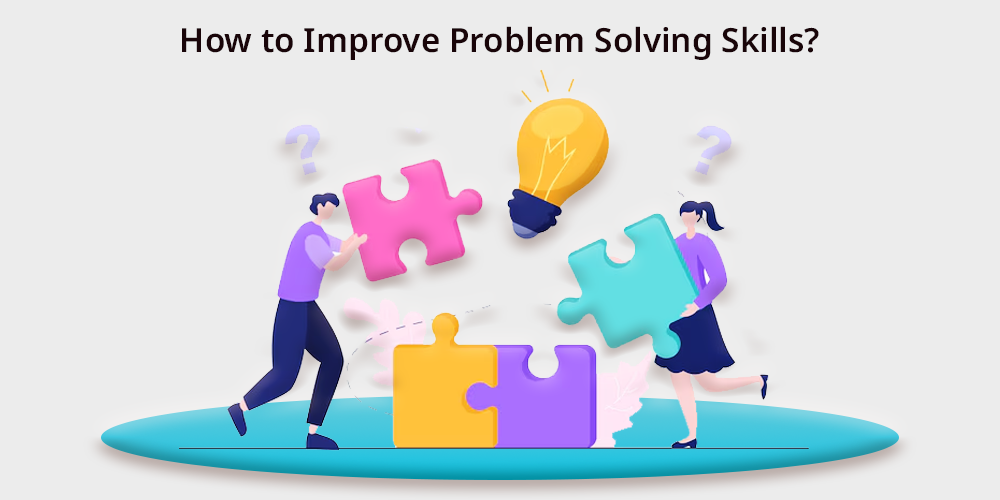
The effective resolution of problems stands as the most essential skill you should learn both in personal settings as well as professional work environments.
The existence of problems is normal throughout workplaces and homes and social environments so your confident and efficient approach to solve issues leads to success together with mental equilibrium.
The development of solid problem-solving capabilities provides a method to handle difficult situations alongside helping you generate strong decisions together with effective solution implementation.
The following blog discussion focuses on problem-solving abilities and their optimizing techniques.
What are Problem-Solving Skills?
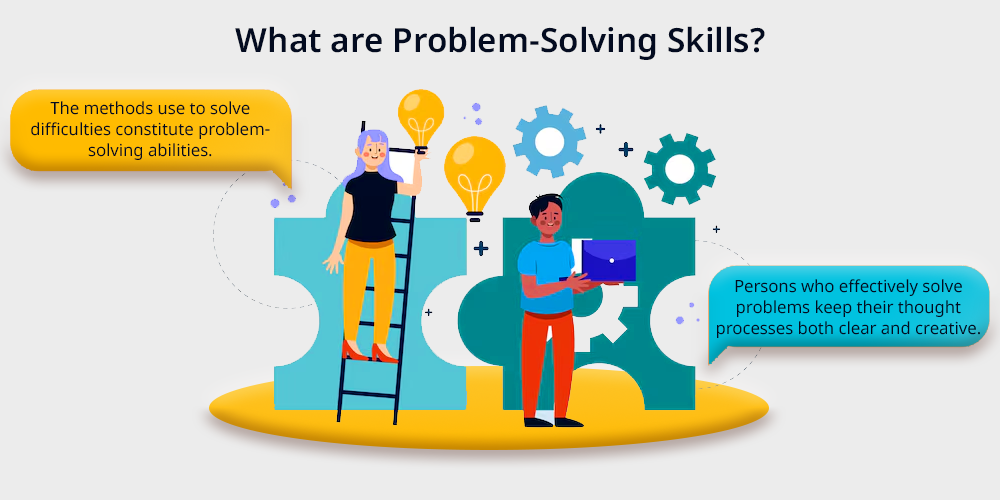
The methods and approaches which people use to solve difficulties constitute problem-solving abilities.
Through these developed abilities you become able to detect issues before you evaluate different solutions before picking the ideal choice to execute.
Persons who effectively solve problems keep their thought processes both clear and creative while making decisions based on logic.
Pressure does not affect their mental state because they maintain their composure while depending on their skills to discover the most effective solution.
Problem-solving serves two vital purposes: repair of instant challenges and development of critical thinking abilities with resilience paired to adaptability.
These skills enable people to use their problem-solving abilities in different settings from career to academic life and interpersonal relationships up to individual development.
Way to Improve Problem-Solving Skills
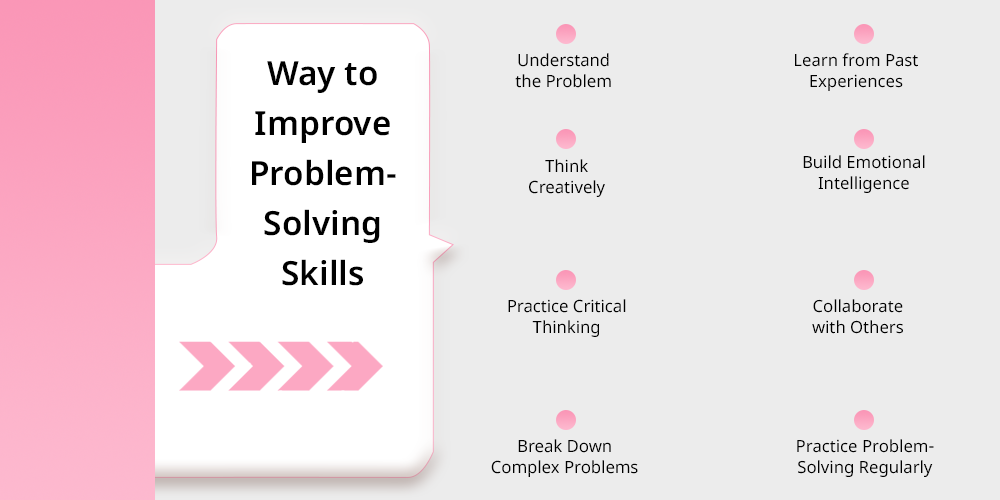
1. Understand the Problem
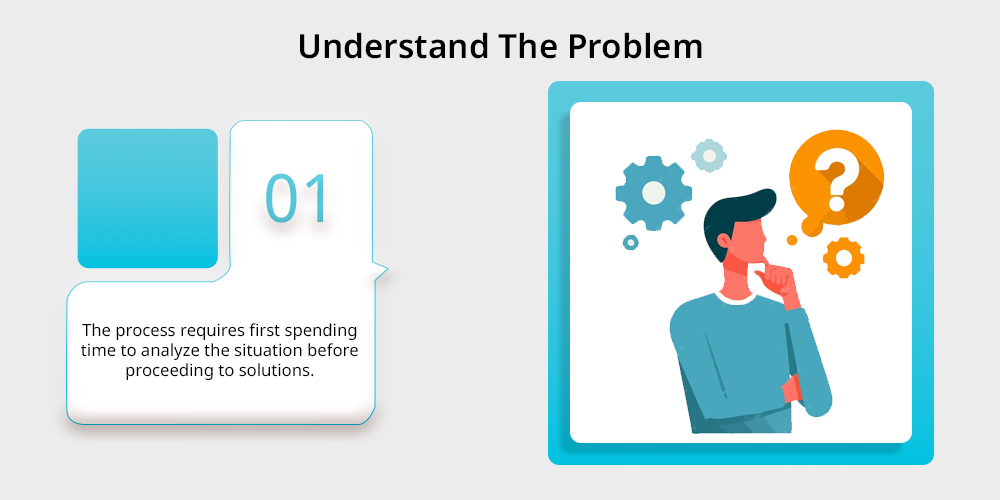
The beginning of problem solution requires full comprehension of the issues you face. The process requires first spending time to analyze the situation before proceeding to solutions.
Several questions must be answered first: What is the actual problem? Why did it occur? Who is affected by it? Research the adverse effects that would emerge if this problem remains unresolved.
2. Think Creatively
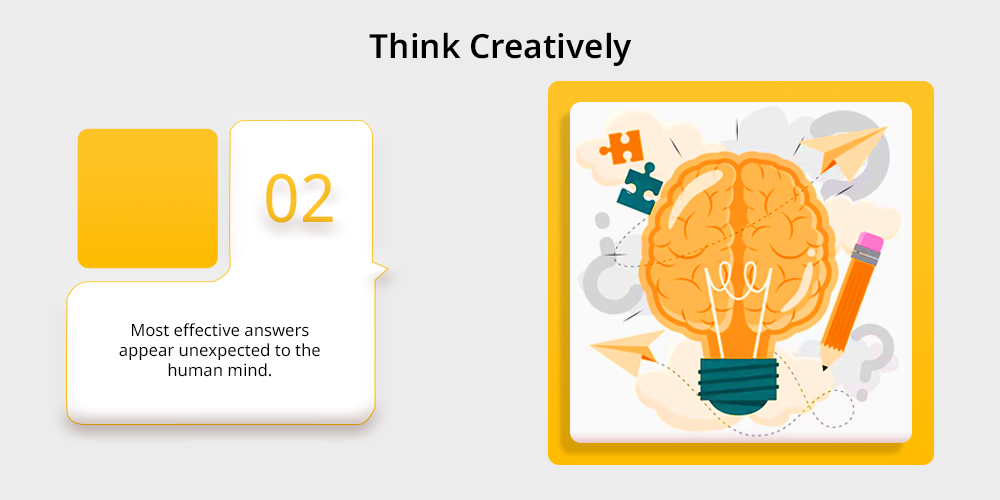
Most effective answers appear unexpected to the human mind. The practice of problem-solving depends on unconventional thinking abilities which welcomes fresh concepts.
Creativity applied to problem-solving makes you examine situations from multiple perspectives leading to new solution possibilities.
Unconventional thinking techniques should be explored. A straightforward concept which appears distinctive can effectively resolve the problem you face.
Unconventional methods generated by creative thought enable you to develop fresh solutions better than those who work with mainstay approaches.
3. Practice Critical Thinking
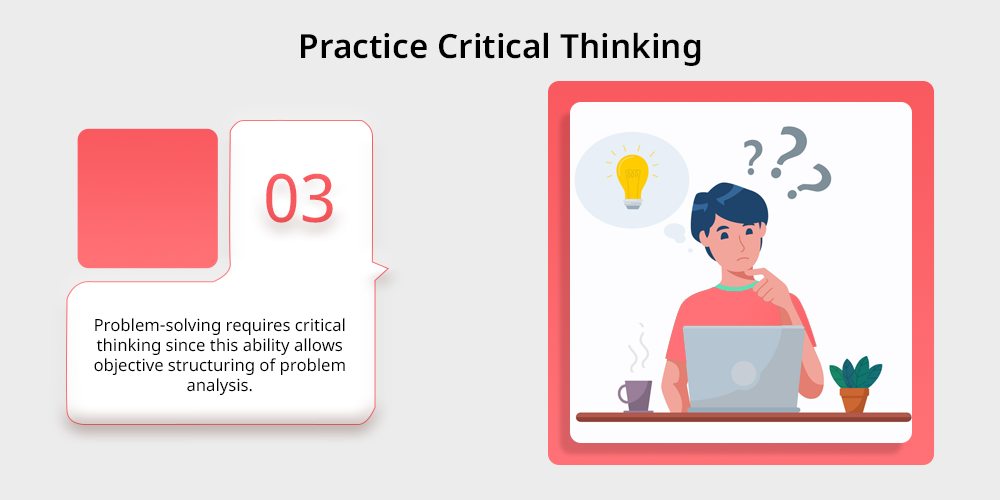
Analyzing data logically combined with the act of weighing different options leads to forming reasoned decisions according to the definition of critical thinking.
Problem-solving requires critical thinking since this ability allows objective structuring of problem analysis.
Critical thinking improvement comes from asking relevant questions to challenge information validity including “What evidence backs up this statement?” and “Can we find different solutions?”
When you examine your assumptions and analyze options carefully you will succeed in solving complicated problems by identifying high-quality solutions.
4. Break Down Complex Problems
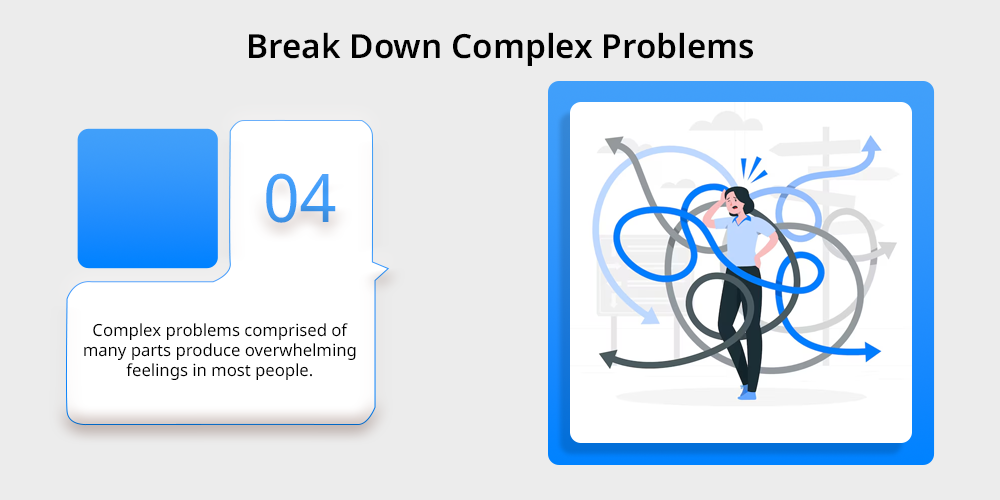
Complex problems comprised of many parts produce overwhelming feelings in most people.
You will solve such complex problems by transforming them into multiple smaller components which are easier to handle.
Each part makes a piece of the challenge easier to handle which enables progressively solving the entire problem.
5. Learn from Past Experiences
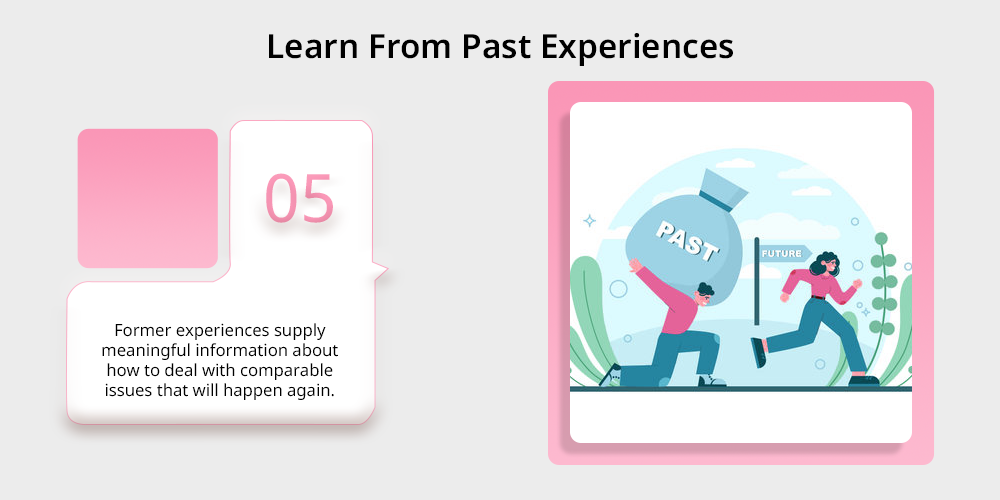
Former experiences supply meaningful information about how to deal with comparable issues that will happen again.
Take time to consider previous obstacles you confronted together with the solutions which worked as well as the results achieved. What worked well? What didn’t? What would be your approach for the following attempt?
Studies of your previous achievements together with your mistakes enable you to enhance your method of resolving problems.
Your collection of lessons from different situations enlarges your knowledge range which produces better problem-solving competency in future instances.
6. Build Emotional Intelligence
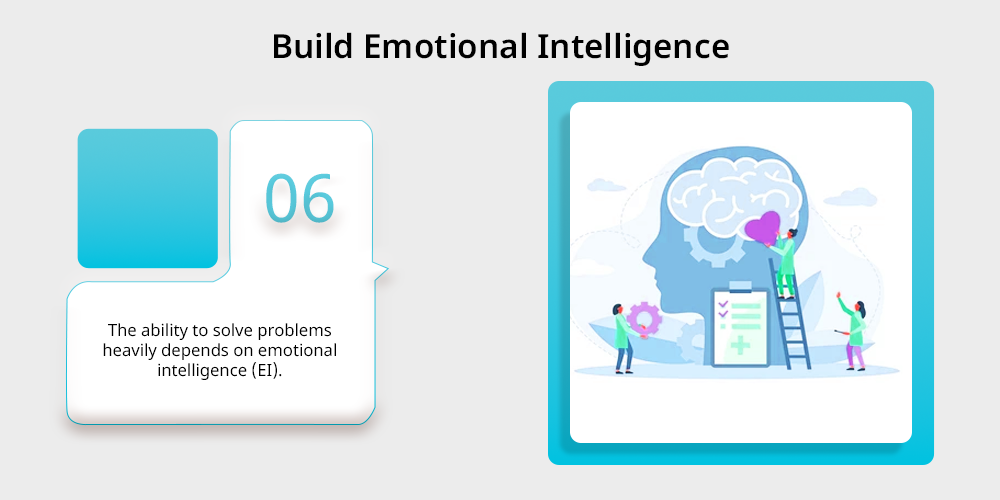
The ability to solve problems heavily depends on emotional intelligence (EI). A stressful situation demands calmness and composure from you regardless of how much stress or pressure you feel.
Better decisions become easier to make with emotional intelligence as it teaches you to control your emotions thus preventing frustration and anxiety from distorting your judgments.
Your ability to solve problems through conflict becomes productive when you develop emotional intelligence because you learn to communicate better with others.
Inside team environments emotional intelligence helps both teams and individual staff members avoid letting powerful emotions disrupt their approach to problem solving.
7. Collaborate with Others
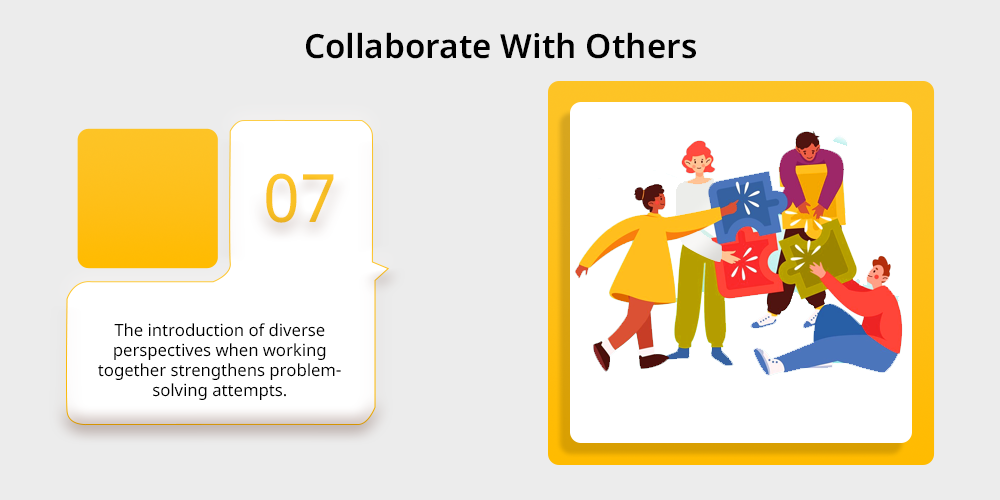
The introduction of diverse perspectives when working together strengthens problem-solving attempts.
Working with others allows you to access a wide range of life experiences and knowledge bases and skills that produce innovative problem solutions.
When working with others you gain access to alternative solutions which might be outside your present perspective.
Seeking advice from colleagues, mentors or friends about any situation will guide you toward solving difficult problems in personal and professional circumstances.
Group problem-solving encourages team members to learn from one another and develops comprehensive solutions that have been thoroughly considered.
8. Practice Problem-Solving Regularly
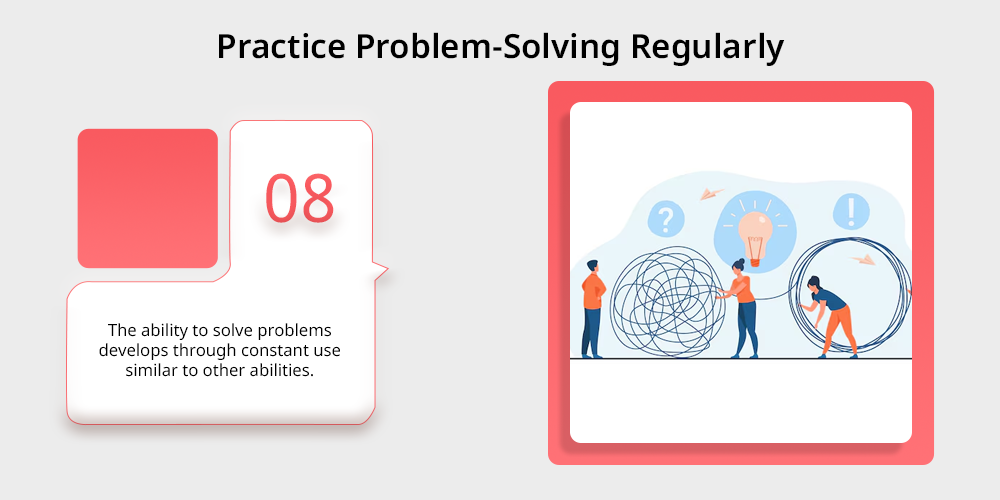
The ability to solve problems develops through constant use similar to other abilities.
Your capability to find effective solutions increases directly with the level of challenging problems you tackle in your work.
Develop a routine which seeks out challenges in multiple life areas then determines their solutions.
Begin by resolving modest everyday problems before moving onto bigger complex situations.
Regular practice of solving problems across varied scenarios allows you to boost your competency while building your assurance when handling challenging problems.
Conclusion
Problem-solving abilities increase the quality of your entire existence since they affect all aspects of life.
Recently or currently dealing with problems at work or school or in your personal life will improve your development because your ability to solve problems gives you stronger outcomes.
The combination of understanding problems together with creative thinking and critical thinking practice followed by teamwork enables you to face any situation confidently and clearly.
When approaching problem-solving remember to commit time to it because the process demands both commitment and unending educational growth.
Through regular practice your skills will improve until you can confidently address life challenges which will generate superior outcomes and achievement.

